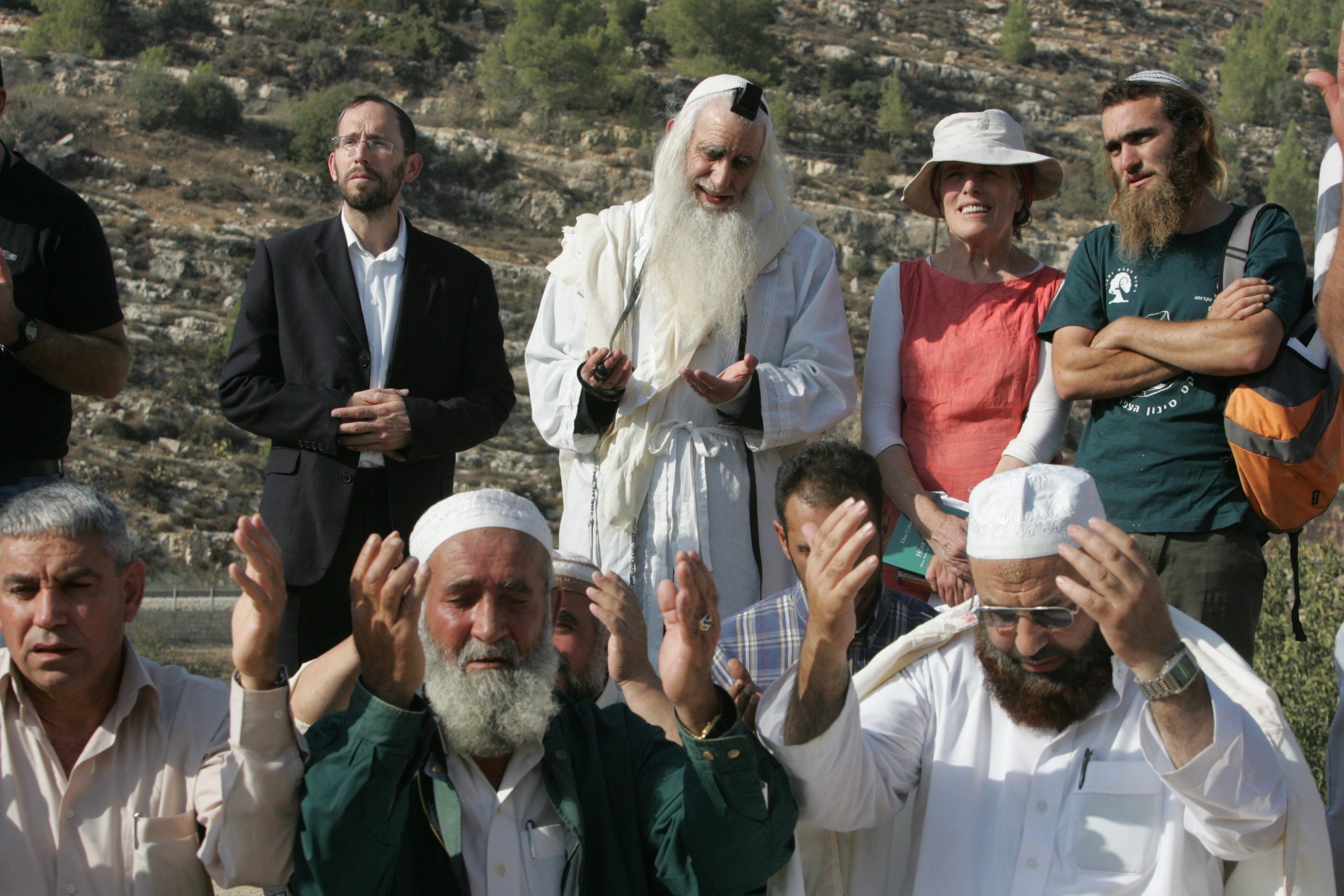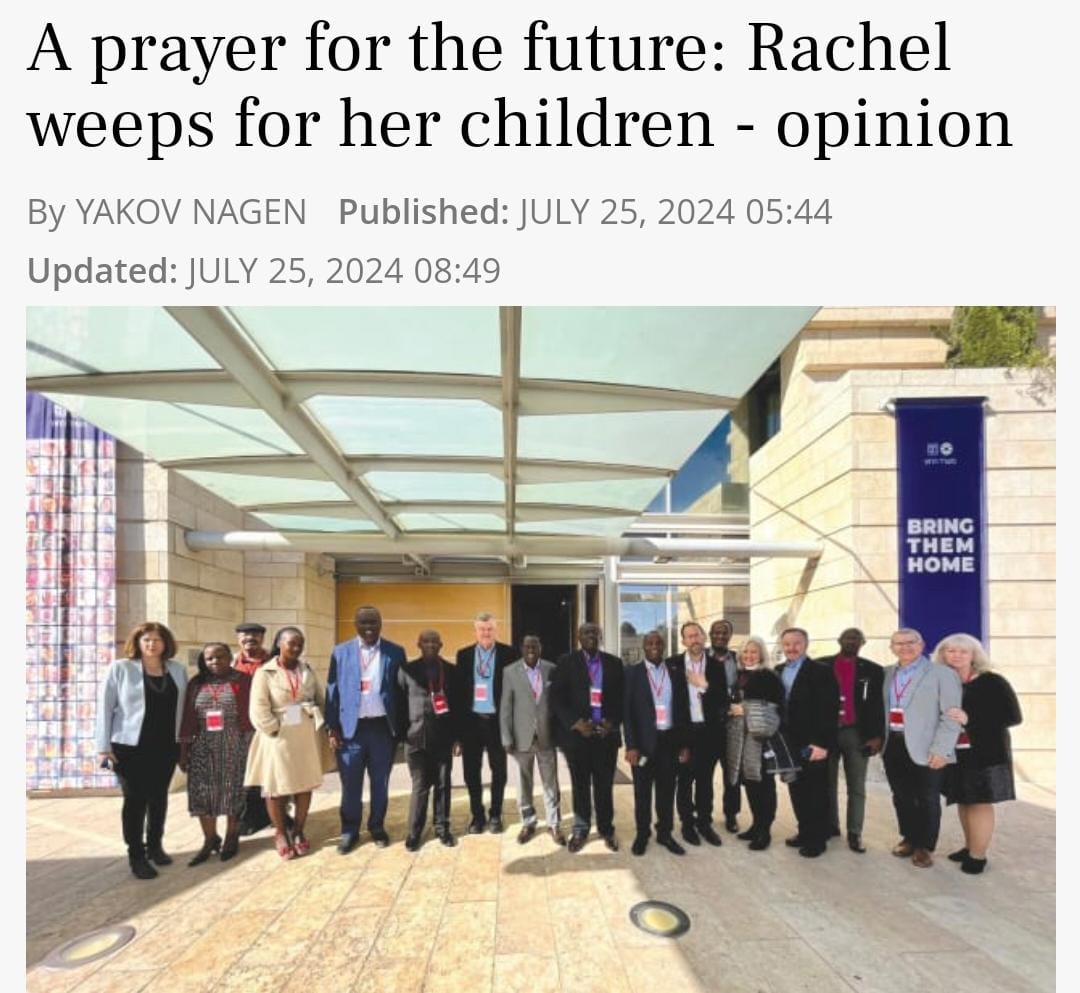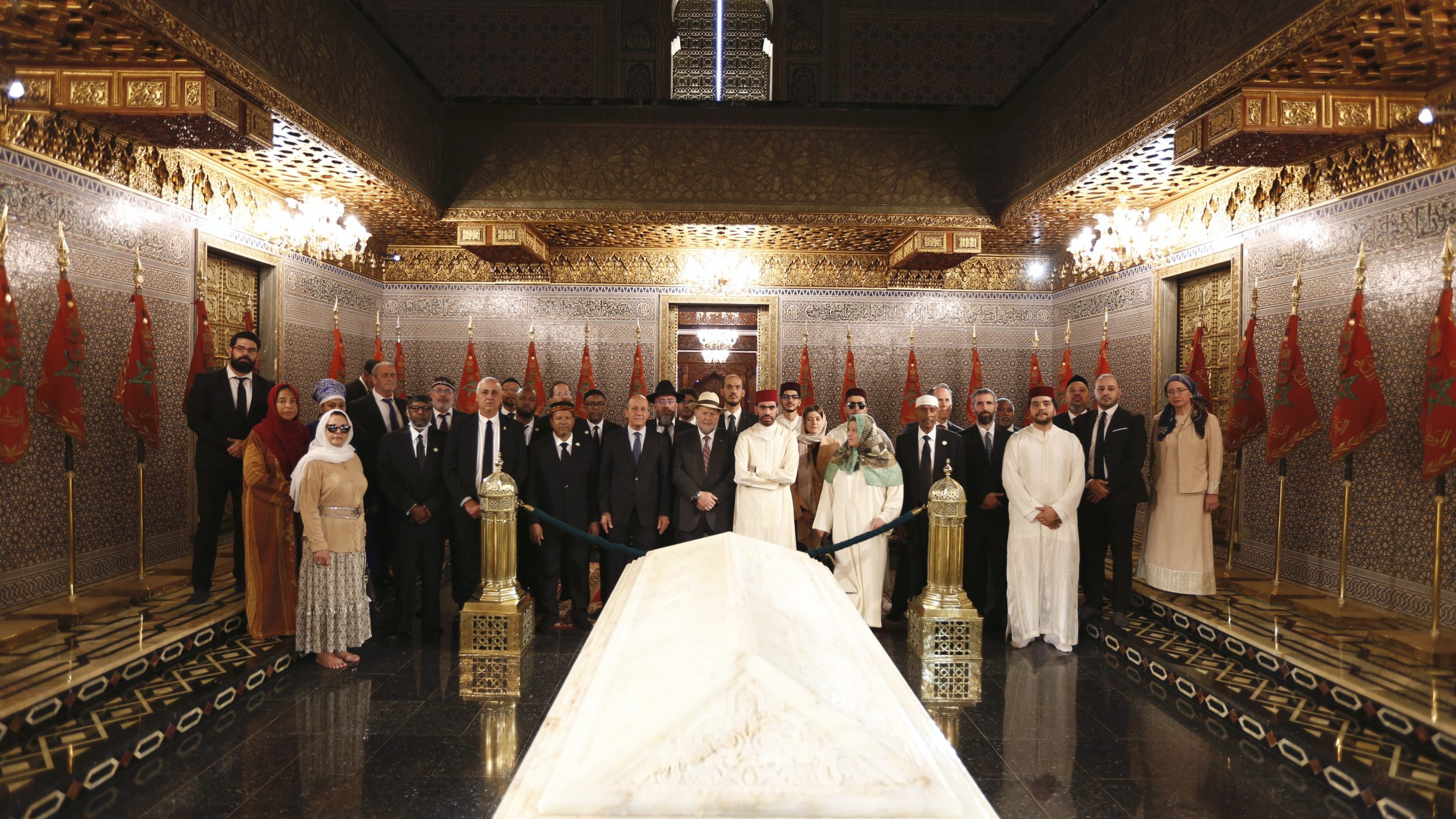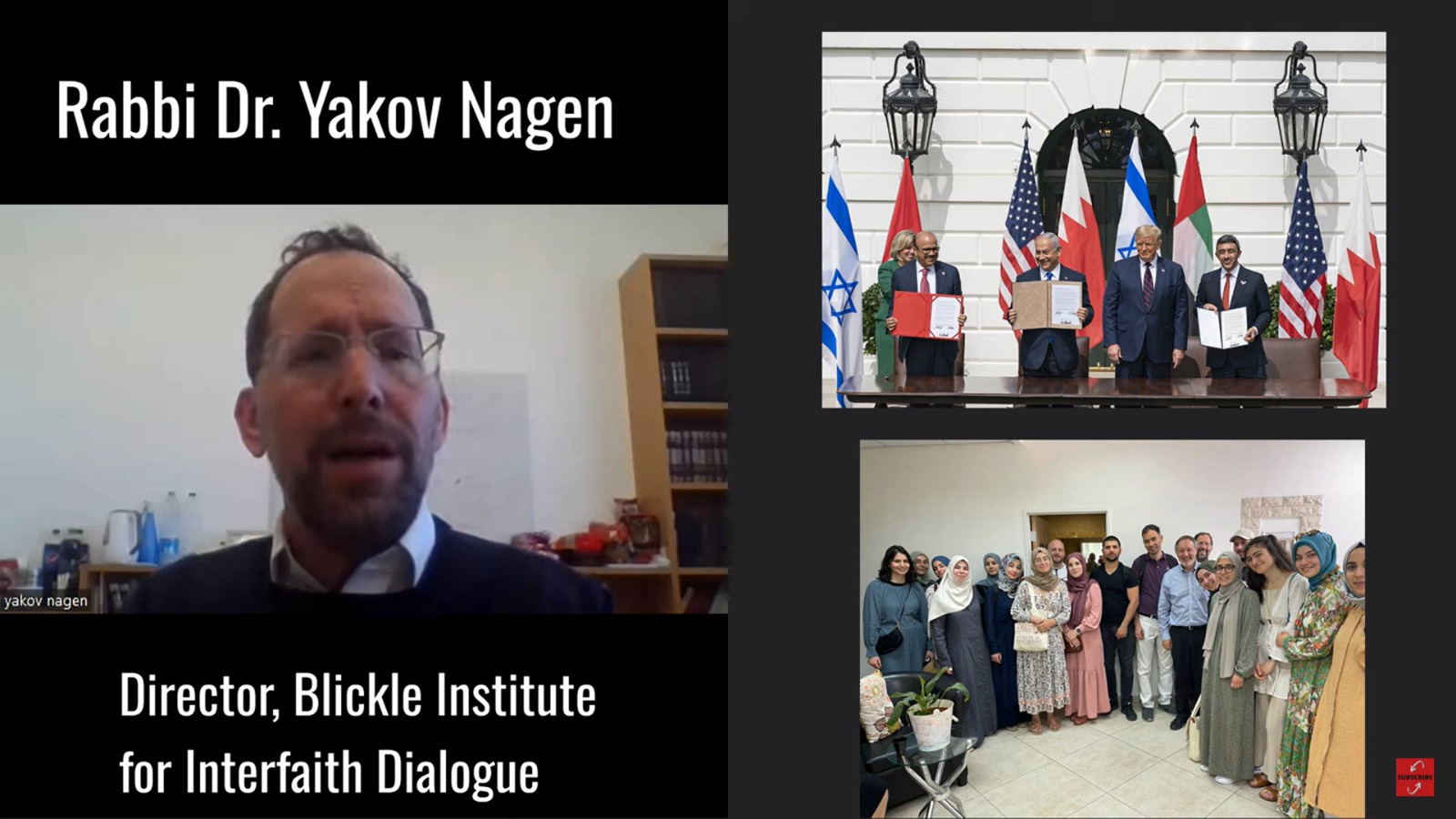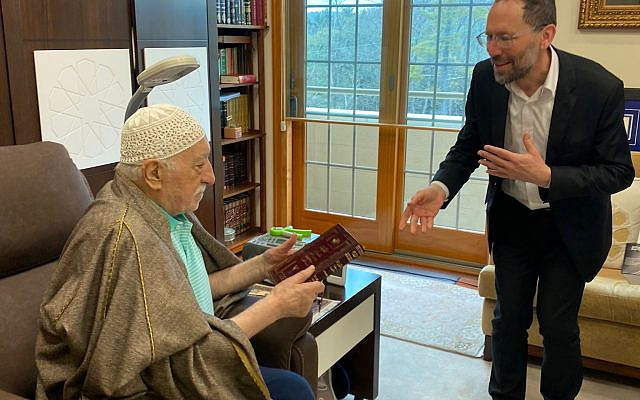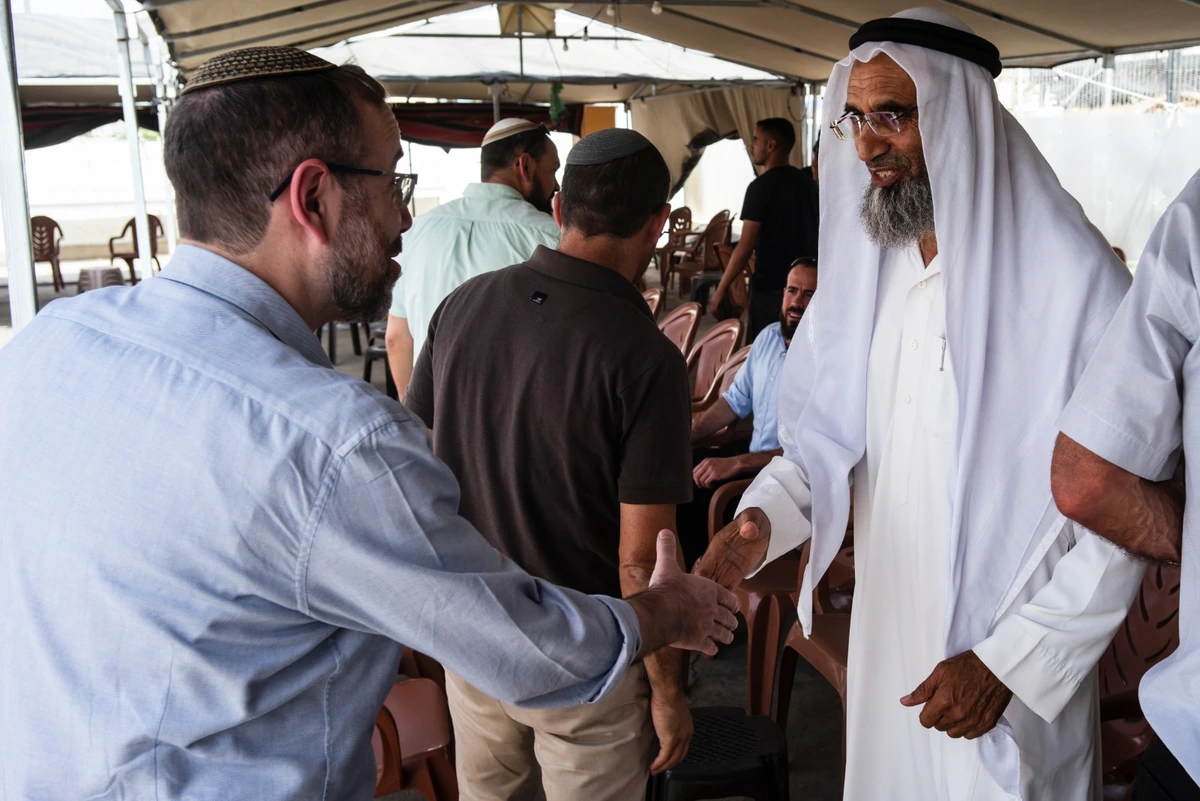From Confrontation to Partnership
Zionism embodied the realization that the Jewish people must take an active role in realizing their destiny. It is this belief that has led to the return to Zion and to the birth of the State of Israel. However, part and parcel of the biblical vision that inspired these great achievements is a vision of the Jewish people healing our relationship with the rest of humanity: not only living together in peace and harmony, but also becoming partners in serving God and fulfilling His will. Here too it is essential for the Jewish people to play an active role to achieve this goal.
The good news is that this process is indeed unfolding, and doing so at a steady pace. In particular, there has been a profound transformation in the relationship between Christianity and Judaism. After many centuries in which Christianity had been a source of untold pain and persecution for the Jewish people, a remarkable fraternity and partnership has developed between Jews and Christians. A dramatic chapter in this process is told in From Confrontation to Covenantal Partnership: Jews and Christians reflect on the Orthodox Rabbinic Statement “To Do the Will of Our Father in Heaven” (edited by Rabbis Jehoschua Ahrens, Irving Greenberg, and Eugene Korn, Urim Publications, 2020). I will attempt to capture the essence of this transformation and its implications, drawing on the book’s more than twenty insightful essays by Jewish and Christian faith leaders and scholars.
Throughout the Middle Ages, Jewish-Christian theological encounters were generally initiated by the Church in order to malign Judaism and convert Jews. Understandably, this traumatic experience led Jews to relate to Jewish-Christian dialogue with skepticism and even great suspicion. Among the leading Orthodox rabbis of the last century, Rabbi Moshe Feinstein prohibited such interfaith dialogue altogether, whereas Rabbi Joseph Soloveitchik, in his renowned essay “Confrontation,” expressed strong reservations.
It was therefore essential that any initiative for change come from the Christian side. A turning point was in 1965, when the Second Vatican Council in “Nostra Aetate” (Latin for “in our times”) redefined the relationship of the Church toward the Jews. It rejected anti-Semitism, the charge of deicide against the Jewish people, the conception that the Jewish people had been rejected by God, and the idea that national homelessness was a divine punishment for refusing to accept Jesus. However, this important step focused primarily on rejecting the negative aspects of Christian theology toward the Jews. It took another fifty years to gradually unfold a process leading to the Church’s embracing Jews as elder brothers and sisters – to proclaim that Judaism retains its covenant with God, to reject the mission of converting Jews, and to establish full diplomatic relations with the State of Israel. A parallel process in Christianity’s relationship to Jews has taken place in many denominations of Protestantism, which has moved from the anti-Semitic views of some of its founders to projecting love of the Jewish people and support of the State of Israel.
To Do the Will of Our Father in Heaven
For most of our history, as a persecuted and embattled minority, Jews had to build walls of separation between ourselves and our neighbors in order to protect our identity. However, if we strive to fulfill the biblical vison of a shared future for the Jewish people and humanity, there must also come a time for these walls to be lowered, and in recent years this too has been taking place.
In 2008, the first Orthodox dialogue center in Israel was established, the Center of Jewish-Christian Understanding and Cooperation (CJCUC), founded by Rabbi Shlomo Riskin and directed by David Nekrutman. In 2015, marking 50 years to Nostra Aetate, a group of Orthodox rabbis came together with the CJCUC to issue an Orthodox Jewish response to the profound changes this document initiated. Their document, entitled “To Do the Will of Our Father in Heaven: Towards a Partnership between Jews and Christians,” was ultimately signed by more than one hundred Orthodox rabbis and leaders. While acknowledging the theological differences between Judaism and Catholicism, it states, “Now that the Catholic Church has acknowledged the eternal Covenant between G-d and Israel, we Jews can acknowledge the ongoing constructive validity of Christianity as our partner in world redemption.… In imitating G-d, Jews and Christians must offer models of service, unconditional love and holiness. We are all created in G-d’s Holy Image, and Jews and Christians will remain dedicated to the Covenant by playing an active role together in redeeming the world.”
Three major insights emerge when contemplating this developing relationship:
Interfaith dialogue is a process; a process requires patience
In the aftermath of Nostra Aetate, both sides experienced disappointment. From a Christian perspective, the Jewish response was tepid, as most Jews responded to this overture with caution and suspicion. From a Jewish perspective, Nostra Aetate lacked much that is essential for Jews – acknowledgement of Judaism’s eternal covenant with God and rejection of the mission of converting Jews. Perseverance on the part of both sides in continuing this dialogue over the course of the last half century has led to sweeping changes. The document issued by the Vatican in 2015, “The Gifts and Calling of God are Irrevocable,” reflects the far-reaching changes since Nostra Aetate, and in particular the above-mentioned issues.
The ongoing changes from the Christian side ultimately elicited Jewish responses. In 2000, thirty-five years after Nostra Aetate, American Jewry issued a public response – Dabru Emet. Tellingly, it was composed primarily by scholars and academics who had interactions with Christian academic colleagues, and not by rabbis. Years later, Orthodox rabbinical statements began to appear, notably “To Do the Will of Our Father in Heaven” in 2015 and “Between Jerusalem and Rome” in 2017. The message from this process can be captured by the popular slogan in Israel, עם הנצח לא מפחד מדרך ארוכה, “The eternal nation does not fear a long journey.”
Interfaith dialogue impacts on theology
Among the concerns relating to interfaith dialogue that Rabbi Soloveitchik voiced in “Confrontation” is that it could lead “to trade favors pertaining to fundamental matters of faith.” Indeed, interfaith encounters can lead to rethinking theological positions. Nevertheless, these changes do not necessarily constitute bartering or tit-for-tat mutual concessions; rather, the very encounter with the other and his religiosity impacts on our understanding of the will of God. I recall meeting a prominent Catholic bishop in Jerusalem who told me that his encounters with devout faith leaders of other religions led him to reinterpret his conception of Christianity’s view concerning salvation for non-Christians. As this anecdote demonstrates, dialogue leads to connection and to respect for the other, which undercuts belief in the exclusivity of one’s faith as the only legitimate path to serve God and achieve salvation. For Christianity this necessitates a radical revision of the dogma “extra Ecclesiam nulla salus” (“outside the Church there is no salvation”), but in Judaism the path to heaven is open to chasidei umot haolam, the pious of the nations. Furthermore, the shared religiosity and connection that arise from interfaith encounters necessarily strengthen the emphasis on a monotheistic conception of the divine, as it is the oneness of God that can allow the unity of humanity. This focus is highlighting in one of the essays in the book and is in in line with the biblical vision of the future redemption:
“If Orthodox Jews choose to walk a mutual path with us Christians, then we Christians should remember the Jewish-monotheistic roots of our own belief. For example, when we say “Lord” in a prayer service, we may not know, or perhaps leave open, whether we mean “Lord Jesus” or “Lord God.” I believe we should follow the example of Jesus instead, who taught us in the “Our Father” prayer to exclusively pray to God the father, and therefore to consistently believe in and practice monotheism. In this we take up the “common covenantal mission to perfect the world under the sovereignty of the Almighty, so that all humanity will call on His name and abominations will be removed from the earth.” (Karl-Hermann Blickle, page 20)
Interfaith is about people
Faith is about God; the “inter” in interfaith is about people and the connections among them. Often experiences and encounters – and not just abstract theological musings – are what lead to change and transformations.
A pivotal figure in this process of healing Jewish-Christian relations was Pope John Paul II. At age 16, when he witnessed the murder of the Jewish faculty in his school by the Nazis, he pledged that if he were to survive and ever achieve a position of influence, he would use it to aid the Jewish people, a promise to which he held true. On his visit to the Kotel he left the following note:
God of our fathers,
You chose Abraham and his descendants
to bring your Name to the Nations:
we are deeply saddened
by the behavior of those
who in the course of history
have caused these children of yours to suffer,
and asking your forgiveness
we wish to commit ourselves
to genuine brotherhood
with the people of the Covenant.
On the surface, the potential of shared heritage to connect us should be self-evident. Rabbinic literature respects Islam’s belief in the unity of God. Islam grants a special status to Jews as “Ahlul Kitab,” People of the Book, and the Quran presents the Bible as a guide granted by God to the Jewish people.
However, reality on the ground is much less rosy then the above would imply, and only if the reasons for the discrepancy are properly understood can they be resolved. Fueled in part by medieval Muslim-Jewish polemics, many Islamic commentaries of the Quran have undermined its explicit favorable approach to Judaism. Specifically, verses in the Quran that legitimatize Judaism are declared by commentators to have been abrogated or to have been relevant only in pre-Islamic times. Moreover, many commentators hold that the Jewish Bible is a distortion of the original book God gave the Jews. In turn, Jewish leaders have generally chosen an insular approach, which was necessary to preserve Jewish identity as a small minority scattered throughout the diaspora in often-hostile environments. Thus interfaith activities and theology were often neglected or shunned.
It now behooves both religions to realize how they benefit from viewing their relationship not as competing narratives but as complementary components of a shared story. As Dr. Tamer Metwally has poignantly argued in a recent book, Bias against Judaism, Islam is an extension of the story of Judaism. Thus, assertions that undermine Judaism and the Torah ultimately undermine Islam, whereas respecting and legitimizing Judaism strengthens Islam’s foundations.
This also holds true for the theological implications of a Jewish state in the land of Israel. If Islam has superseded Judaism, Islam will not be able to come to terms with Israel’s presence in the Middle East. By contrast, legitimizing Judaism validates Jewish national presence in a Jewish homeland, an idea the Quran often affirms: “And We bequeathed unto the people who were oppressed [in Egypt]…the land that We blessed. And the most beautiful Word of the Lord was fulfilled for the Children of Israel” (Sura al – A’raf 7:137). As seen in this verse, the return of the Jewish people to the Land of Israel may be seen as being in accordance with the Quran.
From Judaism’s perspective, there is great value in acknowledging Islam as an Abrahamic daughter religion. Seeing Islam’s success as a fulfillment of the global role of Judaism in the world lends additional purpose and meaning to Jewish identity.
The name chosen for the recent peace agreement between Israel and the United Arab Emirates gives hope that this process is indeed underway. As opposed to names of previous accords, e.g., Camp David and Oslo, named after locations foreign to the Middle East, “The Abraham Accords” expresses the shared religious heritage uniting Jews and Muslims.
The 19th-century Italian rabbi Elijah Benamozegh interprets the closing verse of the biblical book of Malachi that tells of reconciliation between parents and their children – as a vision of hope for a future relationship between Judaism and the Abrahamic religions that it spawned. Let us work together to make this vision a reality.


